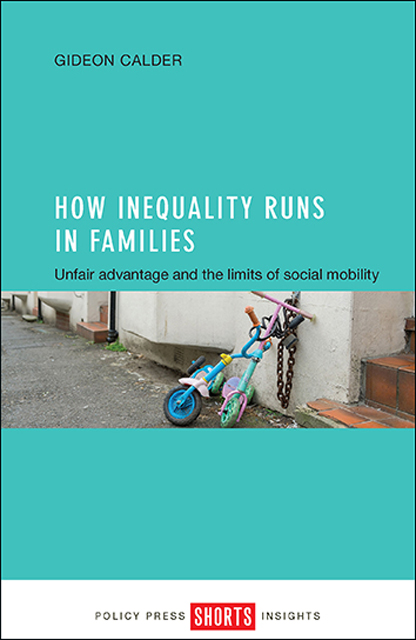Book contents
six - Seven conclusions
Published online by Cambridge University Press: 21 April 2023
Summary
This book has looked at how inequality runs in families, and at ways in which that can be seen as unfair. We defined ‘family’ in a deflationary way, in Chapter Two: as (following Archard) ‘a multigenerational group, normally stably co-habiting, whose adults take primary custodial responsibility for the dependent children’. One reason for doing so was to avoid some of the heftier ideological debates that set in as soon as the family is brought up. I have not tried to ‘sell’ the family – this kind of multigenerational group –as a general force for either good or bad, but rather to look at some of the implications it has for wider questions of fairness. In concluding, it seems worth restating seven key claims that have been made in the chapters in between. Here, they will come across like slogans. But there is a story behind each, in the previous chapters. So while each is contentious, and contested, there are good grounds for defending them.
1. What happens within and between families is, without question, a matter of social justice.
2. Issues of social justice and issues of care should be addressed together, rather than on an either/or basis.
3. Equality of opportunity cannot be genuinely realised without being addressed in conjunction with equality of condition (or outcome).
4. More equal societies (in terms of equality of condition) have better rates of social mobility.
5. Although lack of social mobility is a symptom of class fate, promoting social mobility is not the solution to the problems and injustices with which class fate is associated.
6. Social mobility should be seen as an upshot of social justice – of a society where everyone is treated fairly – rather than a route to it.
7. To tackle how inequality runs in families requires both tackling inequality and challenging common-sense assumptions about the extent of parents’ rights to advantage their children over others.
Concerns about social mobility – raised loud and often in the work of the Social Mobility Commission – are vital to hear. They have shed strong, searching light on the drastically unequal contours of societies like the UK in the 21st century. What we should not do is assume that social mobility itself is the answer to those concerns, or that it will, by itself, stop inequality running in families.
- Type
- Chapter
- Information
- How Inequality Runs in FamiliesUnfair Advantage and the Limits of Social Mobility, pp. 111 - 112Publisher: Bristol University PressPrint publication year: 2016

